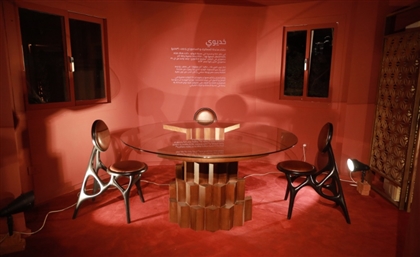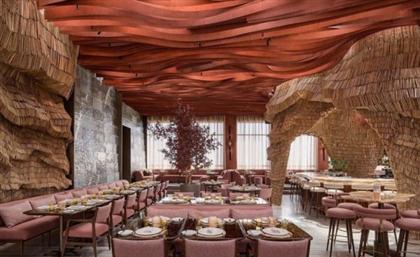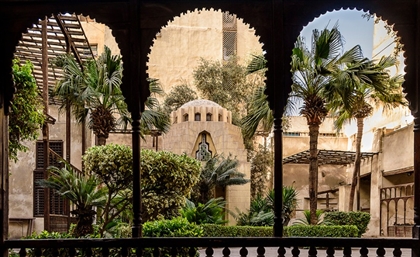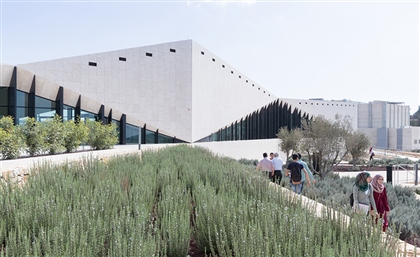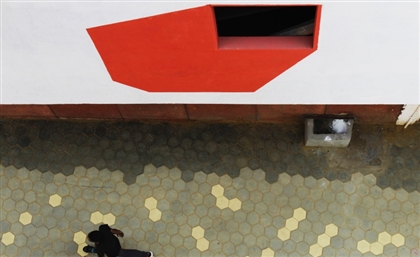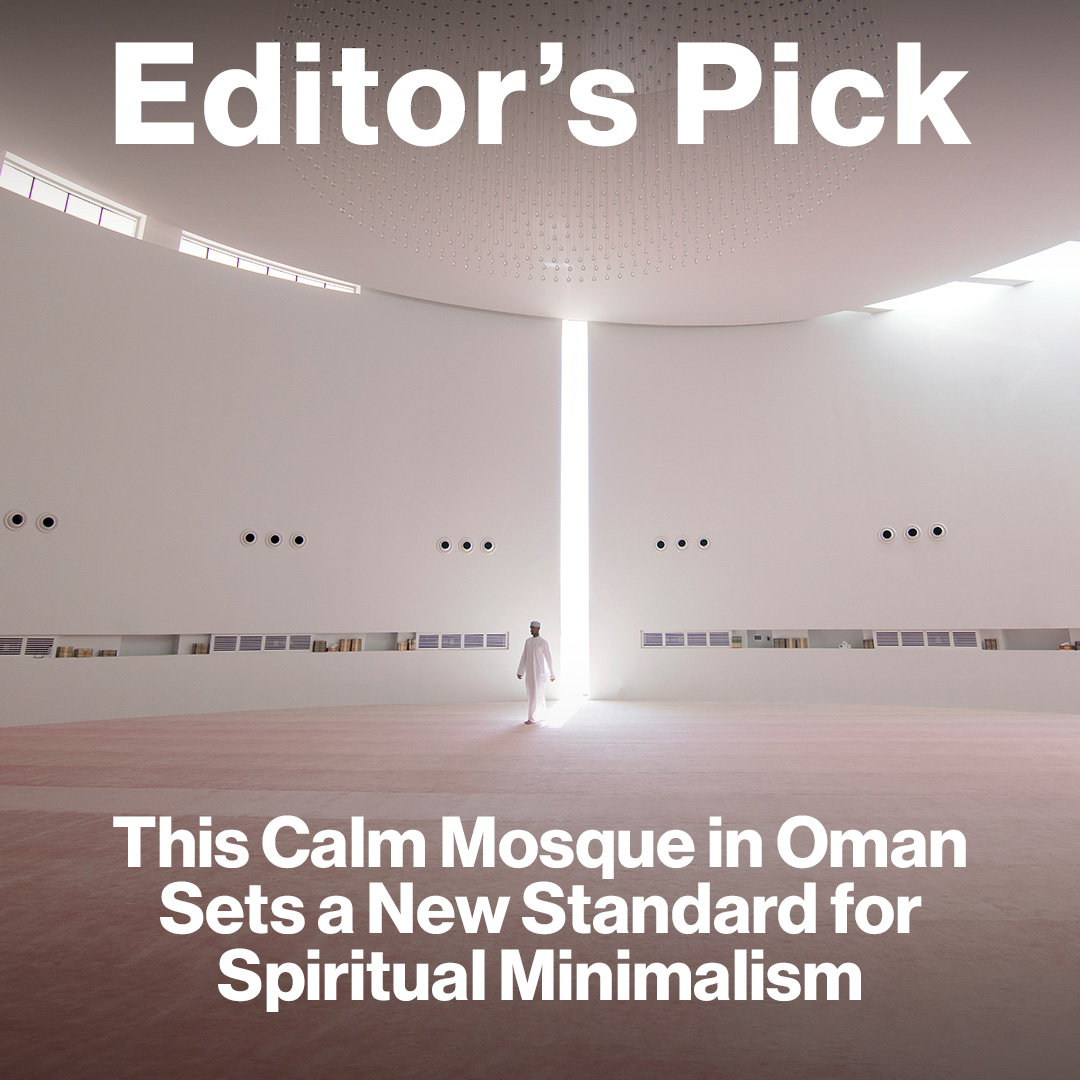Egyptian Architect Shahira Fahmy Brings Dar Tantora to Life in AlUla
Fahmy was selected by the Royal Commission for AlUla to turn 30 old mud-brick buildings into a boutique hotel.
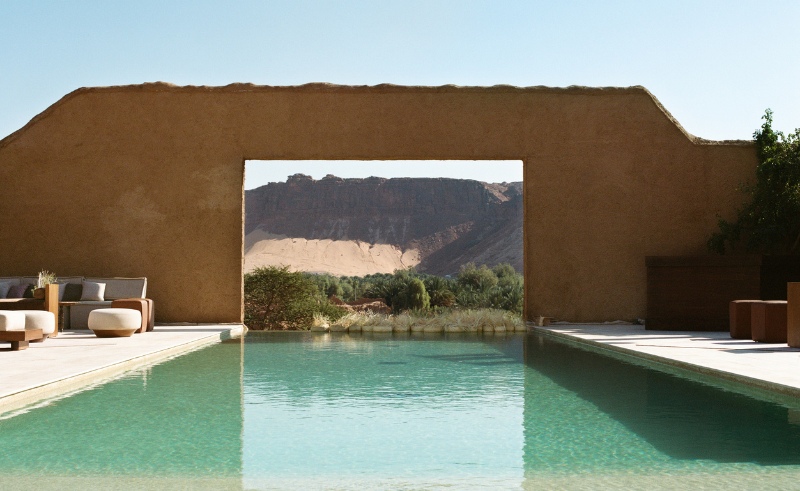
Amidst the labyrinthine pathways of AlUla’s Old Town lies Dar Tantora The House Hotel, a carefully crafted boutique eco-community envisioned by Egyptian architect Shahira Fahmy, a Harvard Fellow hailed as “one of the architects shaping the Arab future” and recently featured in RIBA’s 100 Women: Architects in Practice.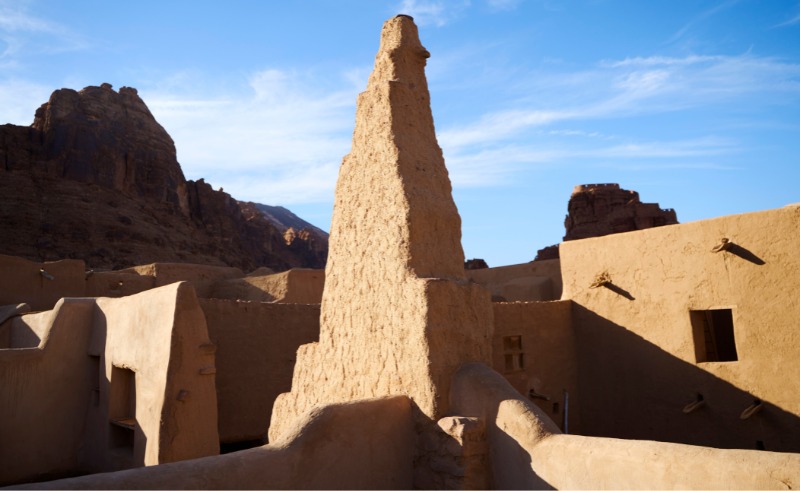
With a profound respect for AlUla’s historical significance, Shahira Fahmy Architects meticulously restored 30 traditional mud-brick buildings, breathing new life into each stone and mural in one of Arabia’s most awe-inspiring heritage sites.
 “It’s an ancient Islamic city, an archaeological ruin,” Fahmy tells SceneHome. “I wasn’t working on empty land without content in the desert or near the mountains. You have context, where buildings are built between stones, mud bricks and farms. You’re restoring something that already exists.”
“It’s an ancient Islamic city, an archaeological ruin,” Fahmy tells SceneHome. “I wasn’t working on empty land without content in the desert or near the mountains. You have context, where buildings are built between stones, mud bricks and farms. You’re restoring something that already exists.”
 Central to Fahmy’s vision was a commitment to sustainability and authenticity. The hotel, lit by candlelight and utilising expertly-restored original irrigation and ventilation systems, minimises energy usage and fosters a low-impact, sustainability-led environment. “Inhabitants used to use cross-ventilation for optimal airflow, with one window higher than the other and one larger, so we have replicated that too,” Fahmy adds. “They kept cool on terraces, so our rooms are terraced.”
Central to Fahmy’s vision was a commitment to sustainability and authenticity. The hotel, lit by candlelight and utilising expertly-restored original irrigation and ventilation systems, minimises energy usage and fosters a low-impact, sustainability-led environment. “Inhabitants used to use cross-ventilation for optimal airflow, with one window higher than the other and one larger, so we have replicated that too,” Fahmy adds. “They kept cool on terraces, so our rooms are terraced.”
 “Once you enter this 12th-century room, you’re transported into another place completely. The whole hotel is candlelit. We have minimal electricity,” Fahmy says. “The rooms have Wi-Fi, one outlet for charging your phone, one socket in the bathroom for shaving or for a hairdryer, but that’s it. The food for guests is cooked on wood fires.”
“Once you enter this 12th-century room, you’re transported into another place completely. The whole hotel is candlelit. We have minimal electricity,” Fahmy says. “The rooms have Wi-Fi, one outlet for charging your phone, one socket in the bathroom for shaving or for a hairdryer, but that’s it. The food for guests is cooked on wood fires.”
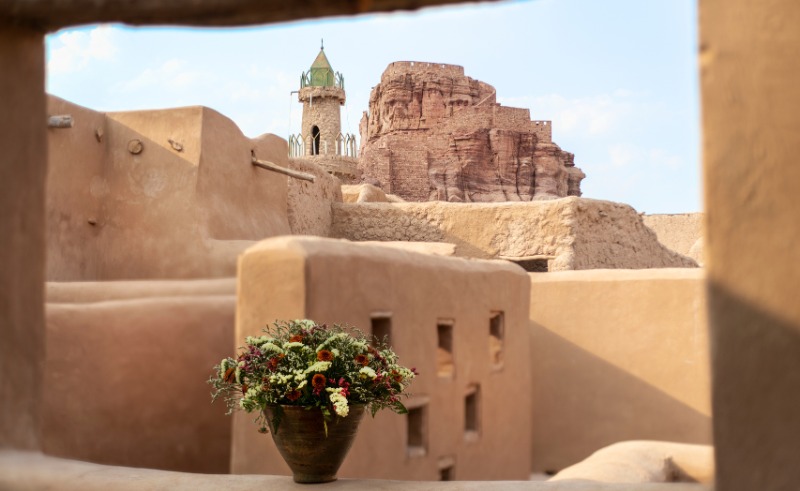 Dar Tantora The House Hotel is built with the same ancient materials and architectural techniques as AlUla Old Town’s traditional houses, offering guests a palpable sense of history. “We moulded the bricks on site,” Fahmy recalls. “All the mud bricks were made from local materials, looking at what was existing and how we could replicate it today.” Fahmy worked closely with local artisans, researchers, and a team from Siwa, Egypt as they had experience with palm materials and mud bricks to restore the fabric of the 12th-century buildings that make up the hotel property.
Dar Tantora The House Hotel is built with the same ancient materials and architectural techniques as AlUla Old Town’s traditional houses, offering guests a palpable sense of history. “We moulded the bricks on site,” Fahmy recalls. “All the mud bricks were made from local materials, looking at what was existing and how we could replicate it today.” Fahmy worked closely with local artisans, researchers, and a team from Siwa, Egypt as they had experience with palm materials and mud bricks to restore the fabric of the 12th-century buildings that make up the hotel property.
 Reflecting the morphology of AlUla Old Town, Dar Tantora’s unique layout pays homage to its surroundings. The traditional tantora, sundial, serves as a timekeeper at the hotel’s entrance, setting the pace of daily life based on the agrarian seasons. With the tantora guiding the design of the property, duplex bedrooms mirror traditional domestic life in AlUla, with bedrooms upstairs and living and working areas downstairs.
Reflecting the morphology of AlUla Old Town, Dar Tantora’s unique layout pays homage to its surroundings. The traditional tantora, sundial, serves as a timekeeper at the hotel’s entrance, setting the pace of daily life based on the agrarian seasons. With the tantora guiding the design of the property, duplex bedrooms mirror traditional domestic life in AlUla, with bedrooms upstairs and living and working areas downstairs.
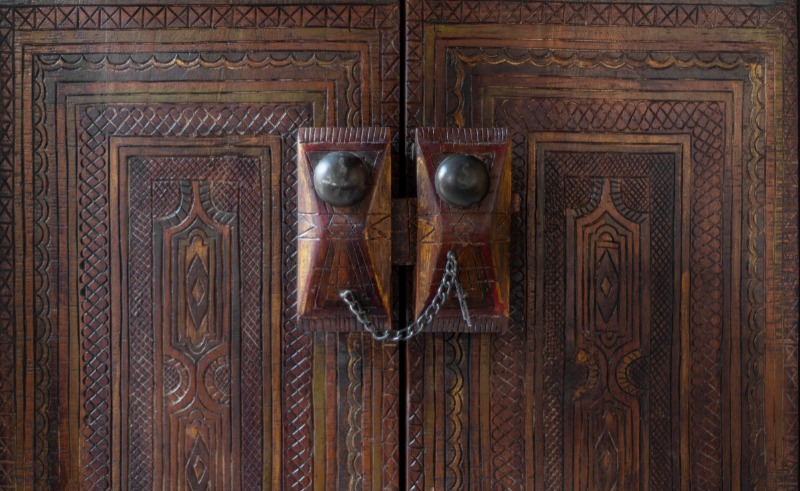 Local artisans and craftsmen, guided by Fahmy’s vision, infused the hotel with the artistic soul of AlUla by adorning the walls with murals depicting local flora, fauna, household items, festive customs, calligraphy and abstract symbols, celebrating tradition in a rapidly evolving world. Students from AlUla’s Madraset Addeera exhibit their artworks at Dar Tantora, celebrating the transfer of traditional arts into a contemporary context.
Local artisans and craftsmen, guided by Fahmy’s vision, infused the hotel with the artistic soul of AlUla by adorning the walls with murals depicting local flora, fauna, household items, festive customs, calligraphy and abstract symbols, celebrating tradition in a rapidly evolving world. Students from AlUla’s Madraset Addeera exhibit their artworks at Dar Tantora, celebrating the transfer of traditional arts into a contemporary context.
 According to Fahmy, inhabitants of the city drew red and blue murals on the interior walls some 800 years ago. Her team managed to preserve the designs in collaboration with the archaeological team. “We wanted people who knew how to paint on wood, because all the doors - not only the walls - used to have drawings and paintings on them too,” Fahmy says. “We also sourced a few items from Al-Dirah Art School. They did a lot of research, which helped us a lot by creating a palette of what the colours of AlUla are. They did a lot of work on the pigmentations and the colours that the people in Old Town used to paint with.”
According to Fahmy, inhabitants of the city drew red and blue murals on the interior walls some 800 years ago. Her team managed to preserve the designs in collaboration with the archaeological team. “We wanted people who knew how to paint on wood, because all the doors - not only the walls - used to have drawings and paintings on them too,” Fahmy says. “We also sourced a few items from Al-Dirah Art School. They did a lot of research, which helped us a lot by creating a palette of what the colours of AlUla are. They did a lot of work on the pigmentations and the colours that the people in Old Town used to paint with.”
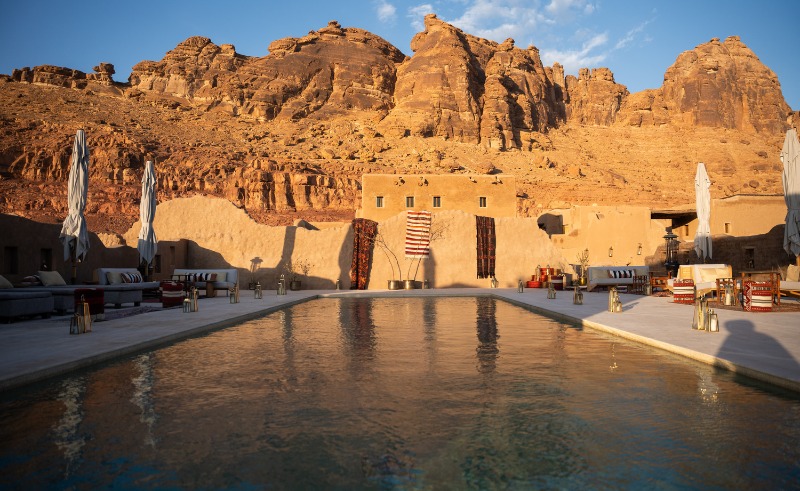 The integration of ancient techniques and materials creates a seamless blend of past and present, offering Dar Tantora guests an immersive experience rooted in AlUla’s heritage. But this notion goes beyond materials, the project also emphasises community involvement and economic impact, leaving a positive imprint on the local community. A year-round programme of local arts, culture and culinary events is present to allow visitors a peek into generations-old cultural celebrations in AlUla Old Town.
The integration of ancient techniques and materials creates a seamless blend of past and present, offering Dar Tantora guests an immersive experience rooted in AlUla’s heritage. But this notion goes beyond materials, the project also emphasises community involvement and economic impact, leaving a positive imprint on the local community. A year-round programme of local arts, culture and culinary events is present to allow visitors a peek into generations-old cultural celebrations in AlUla Old Town.
 “It’s even more beautiful when people start using the spaces and you start hearing feedback,” Fahmy says. “We all work towards this point when you see it filled with people and you see how they’ve activated it.” As AlUla takes its place on the global stage, Dar Tantora stands as more than just a hotel; it’s a living, breathing homage to AlUla’s rich heritage. In its ancient walls and flickering candlelight, the past and present converge in timeless harmony.
“It’s even more beautiful when people start using the spaces and you start hearing feedback,” Fahmy says. “We all work towards this point when you see it filled with people and you see how they’ve activated it.” As AlUla takes its place on the global stage, Dar Tantora stands as more than just a hotel; it’s a living, breathing homage to AlUla’s rich heritage. In its ancient walls and flickering candlelight, the past and present converge in timeless harmony.
Photography Credit: Najla Said (Cover), Mohamed Haimoura and Shoayb Khattab
Trending This Month
-
Apr 23, 2024
-
Apr 18, 2024




